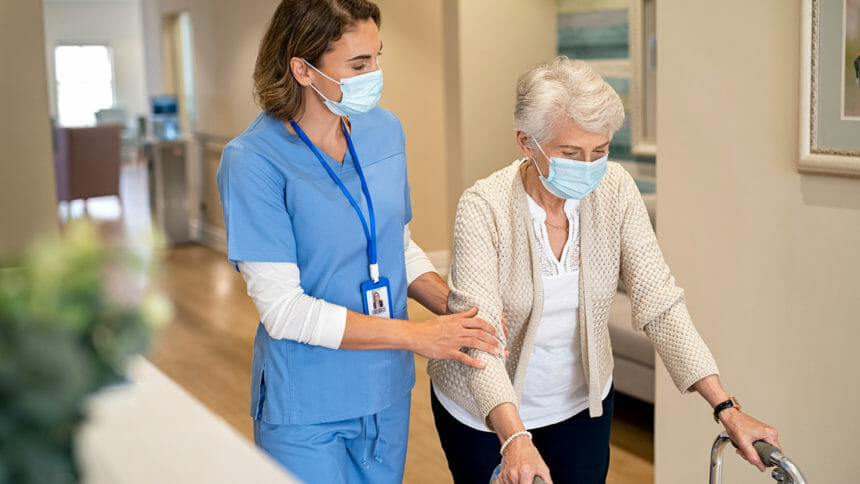
A new report gives details about how nursing home administrators handled the challenges that came with supporting residents with dementia during the COVID-19 pandemic.
The report was published Thursday in the Journal of the American Geriatrics Society.
The researchers conducted about 156 interviews with administrators at 40 nursing homes in the US between July 2020 and December 2021. Participants took part in a 60-minute video conference or phone interviews every three months, and were interviewed about four times.
The questions addressed four themes. First, they discussed how COVID-19 precautions were disorienting for residents, as many residents didn’t have the same awareness about the virus as others without cognitive impairment. This made it difficult for residents with dementia to understand the reasoning behind the changes. This lack of understanding led to changes in behavior, mood, and cognition among such residents.
Another theme the researchers explored was how administrators dealt with infection control challenges with regard to residents who had dementia. It was hard to keep residents isolated from wandering, and explain some of the protocol changes.
The administrators were also asked about how they handled activity limitations and visiting restrictions for their residents with dementia. Finally, administrators shared insights gained during the pandemic, including issues related to staffing and customizing care for residents with dementia.
The report suggests that long-term care facilities need to develop emergency preparedness plans tailored specifically to residents with dementia.
To mitigate the negative effects of visitation restrictions and environmental changes, the authors recommend grouping and isolation procedures that minimize disruption and a risk classification plan for high-risk residents. Memory care units, particularly vulnerable to outbreaks, should be equipped with better ventilation systems, physical spaces that allow for social distancing and resident observation as well as hand hygiene stations, the authors wrote.
Staff need to be trained to handle delirium prevention and management, and be educated on communication strategies for persons with dementia, as well as behavioral and mental health, the authors wrote.




